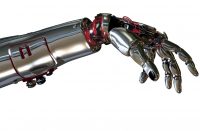The announcement on Sunday 18 April 2021 by a group of twelve “elite” football clubs in England, Spain and Italy—Manchester United, Manchester City, Chelsea, Liverpool, Arsenal, Tottenham Hotspur, Real Madrid, Barcelona, Atlético Madrid, Juventus, Inter Milan and AC Milan—that they intend to set up a European Super League brought widespread condemnation from soccer fans.
This new competition was intended to supersede the existing UEFA Champions League, for which the best-performing domestic league sides now qualify each year, and potentially to pave the way for an outright exit by these clubs from their domestic league competitions in future.
Most controversially, the Super League was announced as a “closed shop,” in which the founder-clubs were guaranteed to keep their place every season, thus removing the possibility of, for example, the likes of Leicester City or West Ham United (both performing well above expectations thus far this season) of qualifying on competitive merit.
The stated intention of the club owners was to secure “a more sustainable future” for European football—in other words, to secure more profits for themselves, with minimal risk. The widespread fury of fans at the move appeared to cause club owners to pull out of the project in just a matter of days; however, it would be naïve to think that we have seen the last of the idea. Indeed further “reforms” that benefit club owners, television companies and advertisers, such as the new “Swiss model” Champions League,¹ are inevitable without drastic structural change occurring in the sport as well as in wider society.
As Marx and Engels wrote of the developmental tendency of the capitalist mode of production in the Communist Manifesto, “All that is solid melts into air, all that is holy is profaned, and man is at last compelled to face with sober senses his real conditions of life, and his relations with his kind.” In football terms, sporting competition, which most fans would hold as sacred to football as an organised sport, is to the owners of these “big clubs” merely an obstacle or impediment to the profitability of their assets, something to be done away with in the name of “progress” and the lie of “sustainability.”
The risk that poor performance on the pitch might result in decreased income from it is anathema to the capitalist. The ESL project provided a perfect work-around for this problem. However, it also exposed in naked terms the contradiction between the interests of capitalist club owners and those of football supporters.
Controversy surrounding the project was notable in that it had even high-profile commenters on the sport, such as Gary Neville and Jamie Carragher on Sky Sports (itself no small irony), lambasting the greed of club owners and decrying the “hyper-capitalism” that resulted in the Super League idea.² Welcome though this anger might be, implicit in such critiques is the notion that capitalism itself can be redeemed, if it were only to be freed from the greed of a few and therefore not allowed to ascend into some accelerated or exaggerated state beyond familiar, acceptable capitalism proper.
This silliness only serves to obfuscate the matter. Capitalism operates according to an internal logic that means that it must continually increase its exploitation in pursuit of profit and move ever closer towards monopoly.³ “Greed” is merely the moral appearance of the inherent, rational quality of the economic system.
The truth is that top-level football was stolen from the working class a long time ago. Football matches on Sky and BT Sports are prime advertising real estate, along with stadiums named after airline companies, jerseys smothered in brand logos, cynical corporate tie-ins, and the ubiquitous, all-pervasive imagery of betting firms. Salaries for players and CEOs alike increase while ticket prices become unaffordable to all but the most well-off of supporters, not to mention extortionate television subscription fees.
The concentration of wealth and power with an elite few means that competition is skewed, resulting in farcical domination by a single club or a small group of competing sides in all the top European leagues. At the same time, smaller clubs are in danger of collapse or going into administration: teams that began as community assets become rootless businesses that can move, merge or disappear according to the whims of the market or their unscrupulous owners.
If this all seems very distant from what sport is meant to represent, it is simply the inevitable result of the capitalist system sucking the vitality out of our communities for centuries.
It is clear that, at the very least, we should uphold a system whereby community assets such as football clubs remain owned and operated by the fans and within the community. Bohemian FC and Cork City FC are examples of member-owned clubs that have seen their ups and downs over the past couple of decades in Irish football, with Bohs recently achieving their second season in a row in Europe despite their comparatively meagre resources. English football boasts a long list, including the likes of the great West Didsbury and Chorlton FC in Manchester and Dulwich Hamlets FC in London, to name but two. Such teams put football back in the community, with affordable ticket prices, an inclusive atmosphere, left-wing politics, and members making decisions over the future of their club.
These are positive working-class values that should be upheld as we work to strengthen the ties between workers, empower communities, and build the material conditions for socialism.
- “The Champions League’s ‘Swiss model’: Why European leagues have strong concerns over reforms,” Goal.com, 9 March 2021 (https://www.goal.com/en-ie/news/the-champions-leagues-swiss-model-why-european-clubs-have-strong-/1xc669zqgg8gm1gf4uj93mpy5q).
- “‘Pure greed’: Gary Neville takes aim at clubs in European Super League,” Guardian (London), 18 April 2021 (https://www.theguardian.com/football/2021/apr/18/gary-neville-premier-league-clubs-super-league-european-liverpool-manchester-united).
- V. I. Lenin, Imperialism, the Highest Stage of Capitalism (1917), chapter 1: Concentration of Production and Monopolies (https://www.marxists.org/archive/lenin/works/1916/imp-hsc/ch01.htm).






